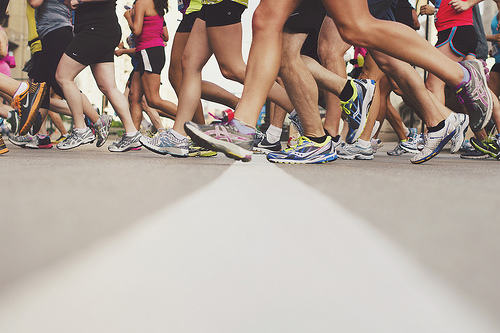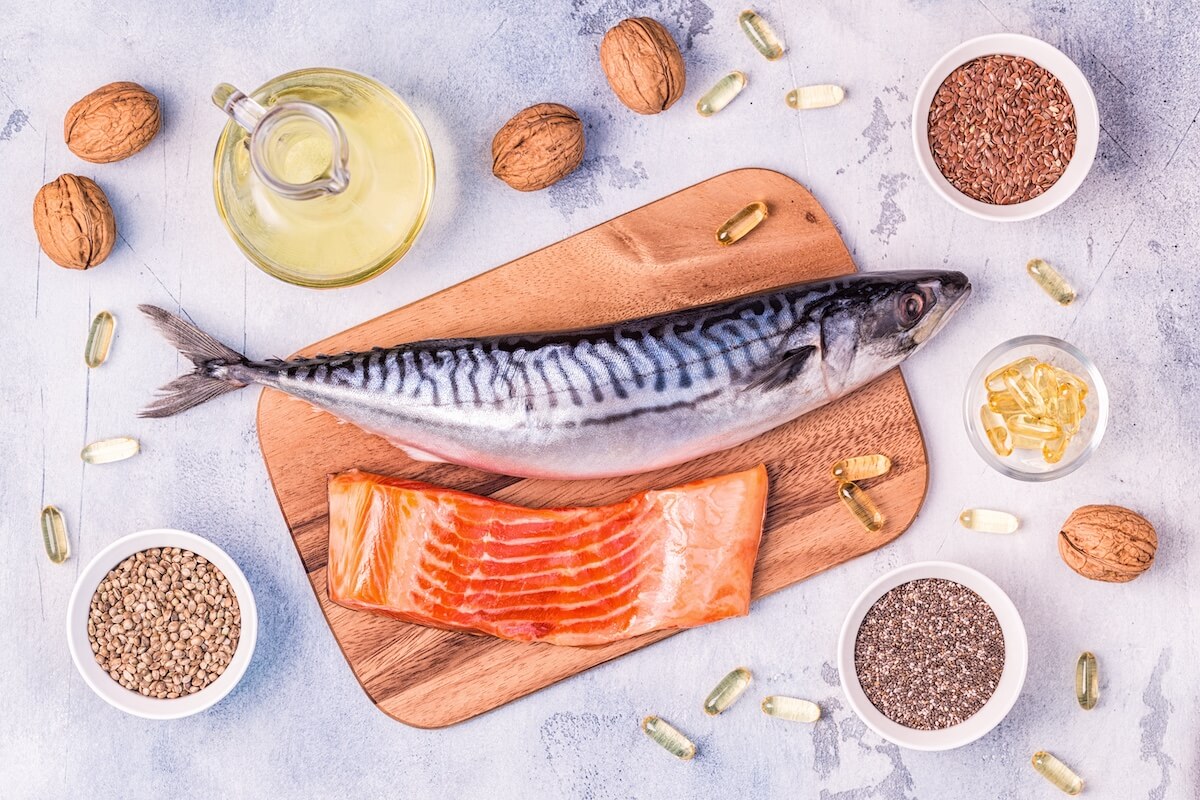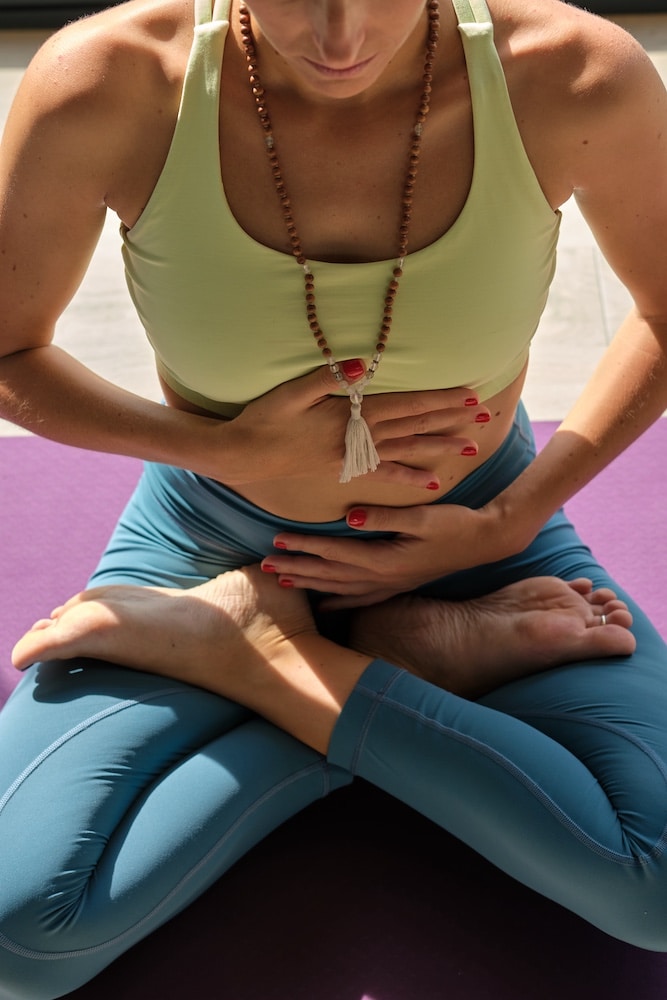Optimizing Athletic Performance Through Strategic Nutrition

By Laura Cipullo Whole Nutrition Services Team
In this post, please note that another name for sugar is glucose.
Calling all athletes!
Whether you’re running the NYC marathon or your first triathlon, nutrition is an important key to performance excellence. Knowing the best foods to eat before, during, and after you compete is essential for a successful event and, of course, not “bonking out”! Here’s the lowdown for fueling your race.
2 to 3 days before the event:
Consume a meal consisting mostly of carbohydrates, moderate amounts of protein plus some amounts of fat; it’s the most favorable repast for athletes before entering a competition. Eat simple, easy to digest (lower in fiber) carbohydrates such as white bread and pasta approximately two to three days before you compete. Louis Burke, PhD, recommends this lower residue intake to minimize intestinal contents —and therefore prevent the need for bowel movements during the event.1 Eating this way is a key element of running free from bloat and gas during the competition.
This meal focuses on carbohydrates because they are digested faster than protein and fat, thus providing the muscles with adequate glucose (sugar) for glycogen stores (your body’s storage form of glucose). This gives athletes enough energy reserves to maintain higher and longer levels of intensity during the event.2 Adequate glucose storage in the muscles will prevent you from experiencing weakness and fatigue when participating in events requiring extra endurance.
Pre-competition meal:
Eating your pre-event meal three to four hours before the game or race is another key element to performing at your very best. A balanced meal will provide you with the maximum available energy you need for competition. Giving your body enough time to digest the meal is key.3
Here are some good examples of pre-competition meals—to be consumed 3 to 4 hours before the event:
- Cheerios with low-fat milk and fruit-flavored Greek yogurt with banana
- Omelet with cheese and baked hash brown potatoes
- White English muffin with avocado and hummus and an applesauce side
- Bagel with natural peanut butter and jam
- Turkey on white bread with a low-fat yogurt
- White pasta with pesto and shrimp
Hydration: 2 cups 2 hours before—and 2 cups during!
Keeping yourself well hydrated both before and during exercise is essential to successful performance. Drinking two cups of fluid (8 oz. per cup) at least two hours before your event can be helpful in preventing dehydration. It’s also important to make sure that you drink another two cups of water for every hour you are competing.5 Preventing dehydration can keep you from feeling fatigued and can prevent your muscles from cramping during your competition. If you’re an athlete participating in an event lasting over an hour, you should also think about electrolyte depletion. Excessive sweating causes you to lose important electrolytes such as sodium and potassium—and can adversely affect your performance. To replace lost electrolytes, consider choosing a sports drink such as Gatorade which will aid in electrolyte repletion and rehydration. Sports drinks usually contain carbohydrates, sodium and potassium. Gatorade (and other sports drinks formulated especially for athletes include water, glucose/sugar and electrolytes) provides the ideal ratio for rehydration and repletion of electrolytes and glycogen stores.6
Recovery foods:
Recovery foods to consume at your post-event meals are just as important as your pre-event meals. During exercise, your body breaks down its muscle glycogen stores. When your body uses the available glucose in your blood, it needs to switch to reserves. It can quickly break glycogen down into glucose which causes the glycogen stores to become depleted. Due to this breakdown, replenishing your body with carbohydrates is crucial for adequate recovery.7 Make sure you eat enough carbohydrates to restore the glycogen in the muscles that was depleted during the event. Protein will help to repair the muscles that were stressed. Antioxidants are also beneficial at this time; they aid in repairing any free radical damage that occurred during your intense exercise. In general, consuming carbs and proteins within thirty minutes of your workout is ideal for muscle recovery. This muscle recovery period will last for about 30 minutes to four hours post exercise.
Here are some post-event meal ideas to help you recover and prepare for your next workout:
- Oat bagel toasted with almond butter and fresh strawberries
- Whole grain wrap with grilled chicken, hummus and tricolor peppers
- Whole-wheat burrito with white rice, beans and veggies
- Grilled salmon and quinoa with steamed squash
- Smoothie with low-fat milk, banana, peanut butter, protein powder and wheat germ
- Spaghetti and meatballs with spinach
On average, it’s recommended that a female athlete (about 5’4” and 140 lbs.) consume approximately 500 grams of carbohydrates and 76 to 89 grams of protein per day. It’s recommended that a male athlete (about 6’0” and 180 lbs.) consume approximately 700 grams of carbohydrates and 98 to 113 grams of protein per day.7
Providing yourself with the proper energy foods both before and after your competition can make a huge difference in your performance. Eating a low residue, carbohydrate rich diet is important for your pre-event meal while eating within thirty minutes of a competition is crucial for your post-event recovery. What you feed your body both before and after competition can be the most important key for turning an adequate performance in your event into an excellent one!
What do you eat before and after an event? What foods work for your body? Do you have any secrets to your success that you can share with our readers?
References:
1. “Conference Highlights.” Scan’s Pulse. Spring 2014; 33(2):16-18. 06 Apr. 2014.
2. “Pre-Event Meals.” American College of Sports Medicine. www.acsm.org. Accessed April 13, 2014.
3. Berning J, Neville K. “From The Sandlot to the Olympics Fueling Athletes A Key To Success.” Dry Bean Quarterly. Beaninstitute.com. 2014. Accessed April 6, 2014.
4. Berning J, Manroe M, Meyer NL. “Recommendations for Fitness Athletes on Food and Fluid Consumption.” Gatorade Sports Science Institute. Accessed April 13, 2014.
5. Jeffrey, K. “How to Hydrate Before, During, and After a Workout.” Active.com. N.p.n.d. Web. Accessed April 6, 2014.
6. Caldwell J. “Sports Drinks: Are they effective in improving Athletic Performance?” Vanderbilt University Psychology Department. http://www.
7. The Position Statement from the Dietitians of Canada, the American Dietetic Association, and the American College of Sports Medicine, Canadian Journal of Dietetic Practice and Research in the Winter of 2000, 61(4):176-192. Accessed April 13, 2014.







